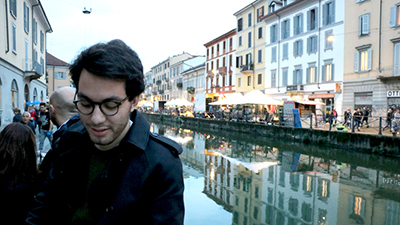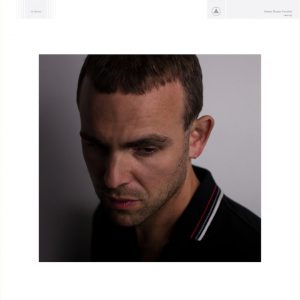
BY MERT ENEY (LAW/IV)
mert.eney@ug.bilkent.edu.tr
Amen Dunes: Freedom
Rating: ★★★★★
Damon McMahon (who performs under the moniker Amen Dunes) had a strange upbringing – he grew up between his suburban home in Connecticut and downtown parties in New York City. He founded a band, then dismantled it; made three albums as Amen Dunes; and has now released “Freedom,” his latest self-reflective, journalistic and philosophical effort. It vibrates with its own kind of mantra and releases every burden and pleasure felt, experienced or lived through over his sentient years – for this exact reason, the final act of releasing the record makes the title meaningful: from everything that keeps a person captive (be it the slow death of a mother or the insufficient love of a father), freedom.
The album is, at its very core, about documenting one’s life, trying to make sense of what is being experienced. It was written during a stage of turmoil in the artist’s life, and this quality of accumulated negative energy is evident with every painstakingly sung lyric. Feelings of inertia and nausea coexist like long-lost brothers in “Freedom,” and this makes perfect sense. Perhaps to arrive at a more comprehensive vision, McMahon relied on both reality and fiction to compose these songs. In a recent interview, he said, “I’m specifically singing about my family and the kids I grew up with. But then it also has lots of characters that aren’t literally me. They’re a part of me, instead: Parisian drug dealers, ghosts above the plains, fallen surf heroes, vampires, thugs from Naples and Houston, the emperor of Rome, Jesus, Tashtego, Perseus, etc.” The result is revelry – not a clear representation, but better yet, a clear analysis of the muddy waters of this life.

The album draws upon influences from a wide range of sources, not just personal, but also musical. “Time” feels almost exactly like any Destroyer song, while the track right after it, “Skipping School,” sounds distinctly like an Arcade Fire B-side that has just been released after years spent in a forgotten file on some studio computer. As a whole, the album reminds me of the work of the late David Bowie. But then again, all of the songs on the album exist in a persistent coherence with the others, as different parts of something great – like lights reflecting individually from the different buildings as one slowly approaches an unfamiliar city. Damon McMahon has created a distinct sonic landscape that is deeply personal yet resonant enough to be shared with the world. It is self-reflective without being indulgent, and that is the particular strength of “Freedom” – it seems to be inviting you somewhere, to a party at dawn or the kitchen of an unoccupied house, a place where the personal is also universal.
At times, Damon McMahon can be seen as an unreliable narrator – describing everyone around him in a different light in each lyric. In one song, he portrays his dad as the cool kid in the school, high on “sniffing glue till his lips turn blue.” In another, he is depicted as the destructive father figure looking for war. But rather than manipulating experience to convey a consistent storyline, McMahon is brutally honest about his life – he tries to fathom his family, death and masculinity, concepts that are larger than life, and the result is naturally not always a neat snapshot of what is. “Freedom” is an examination into the very act of conciliation – of reality and fiction – or perhaps an expression of being somehow content with whatever life throws your way. The songs, different snapshots of McMahon’s life, make up a kind of photo album, with gorgeous songwriting like “High up in the Hollywood hills, I’m barely awake / Got my arms around some clown who’s barely awake / Doesn’t she look stupid now / Tears trickle down our face / Pretend I light my first cigarette and drive down to L.A.” The music album, on the other hand, is the act of throwing those photos into a fire in the backyard.
“The waves are gone,” cries McMohan in “Miki Dora,” and you are left wondering when, specifically, did they arrive in the first place to make you this seasick? “Freedom” plays with your own sentiments about life, and forces you to examine, examine, examine. It is a cosmic album, much like stardust slowly disappearing as you try to steady your gaze in a life of constant nausea.
